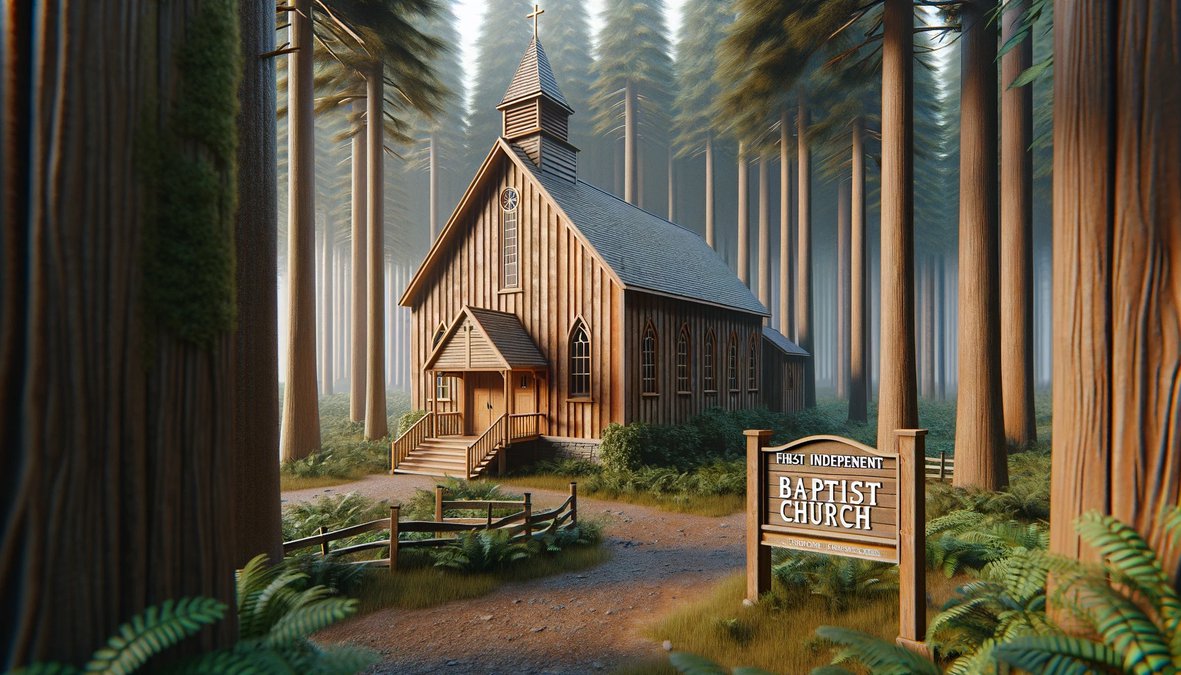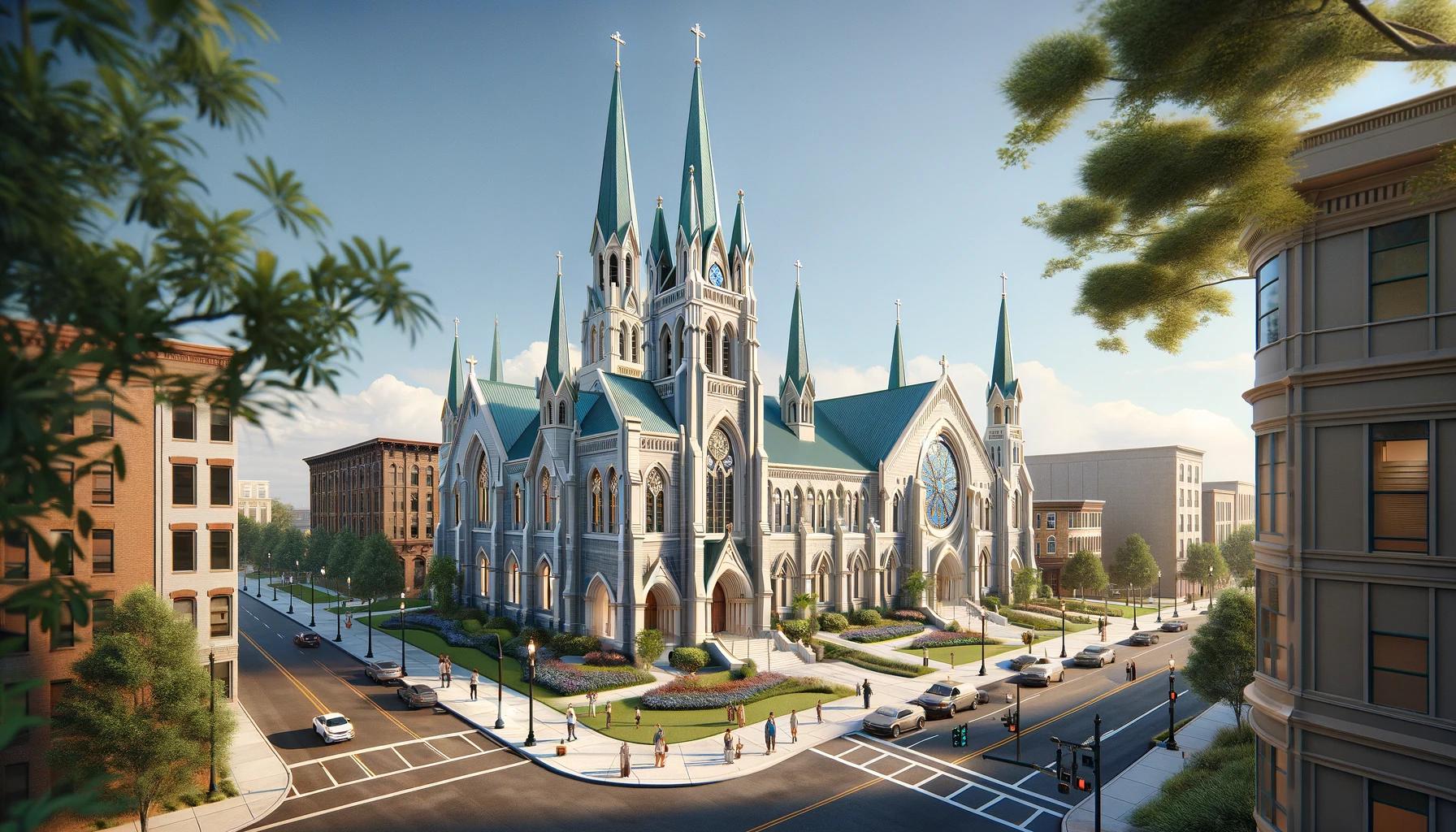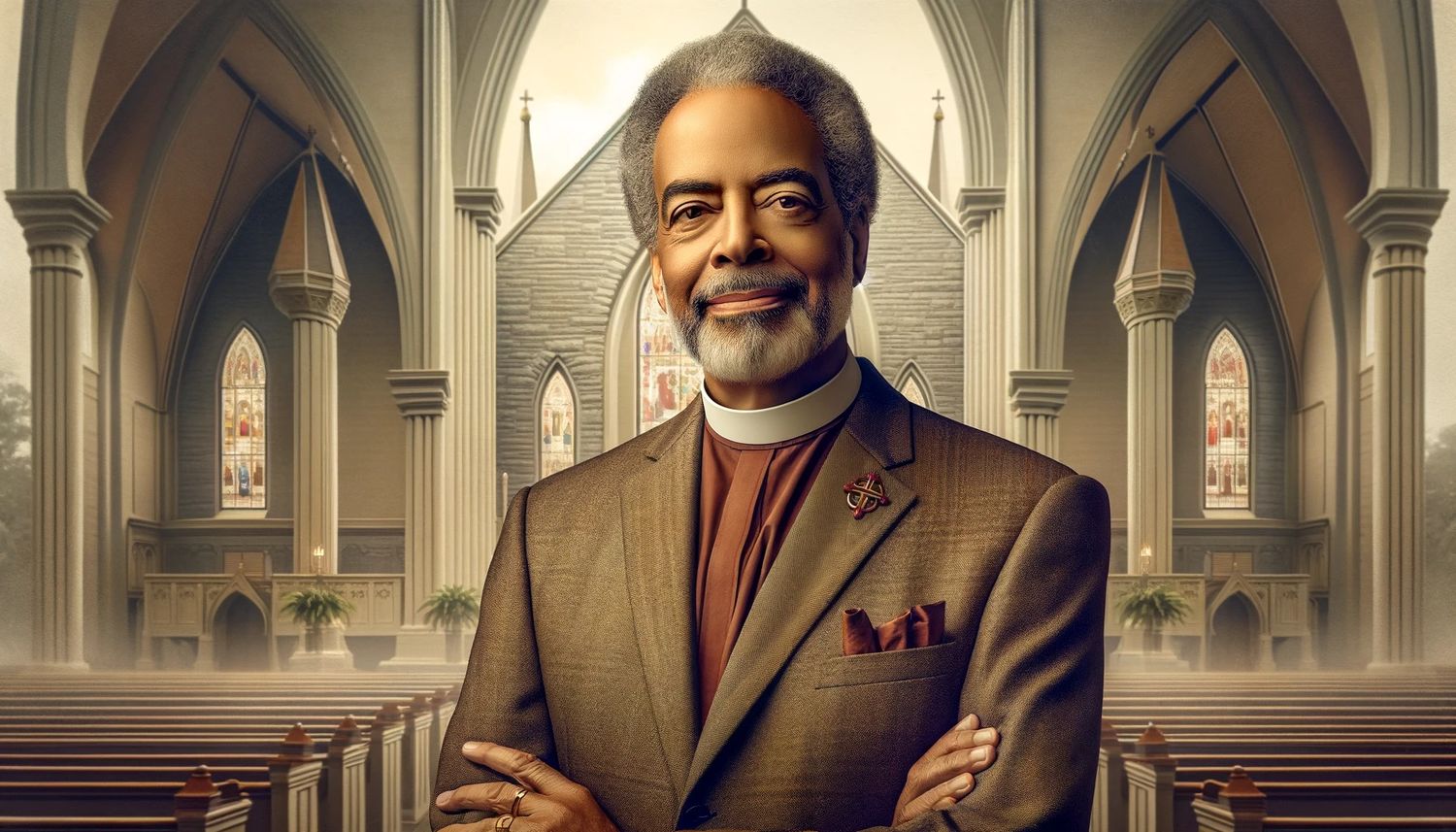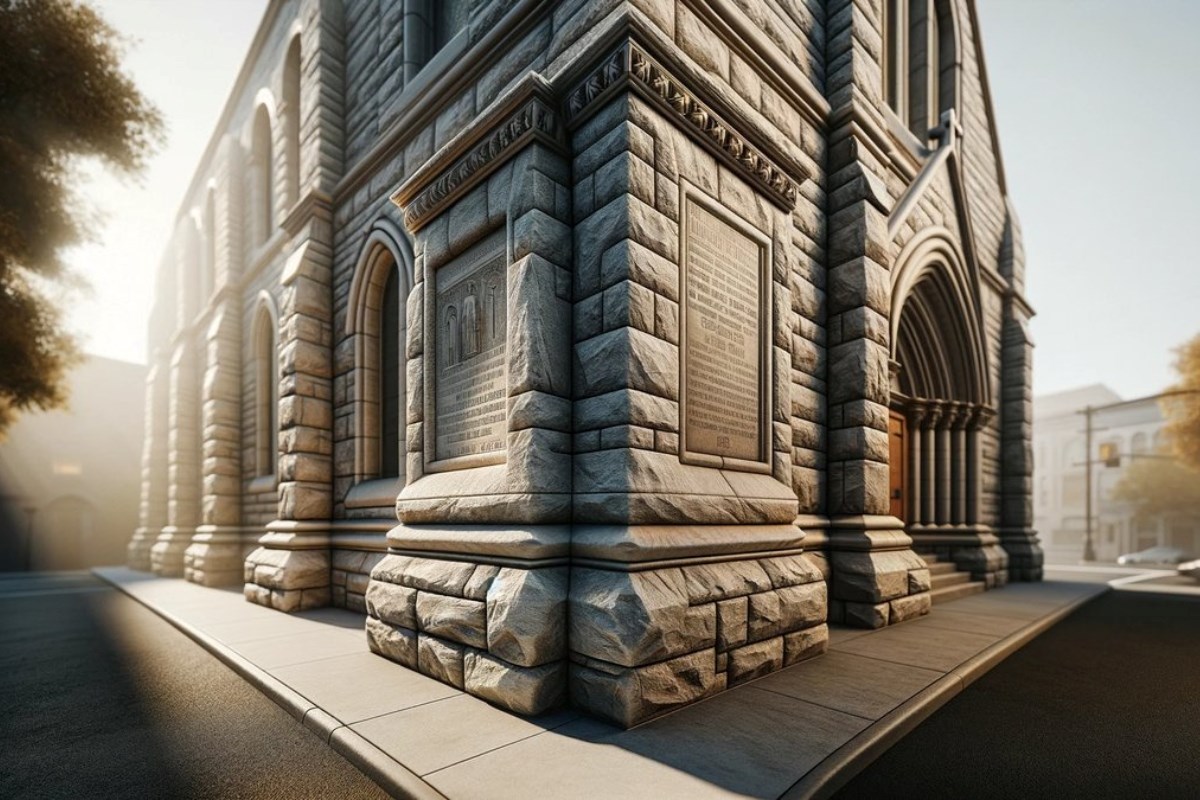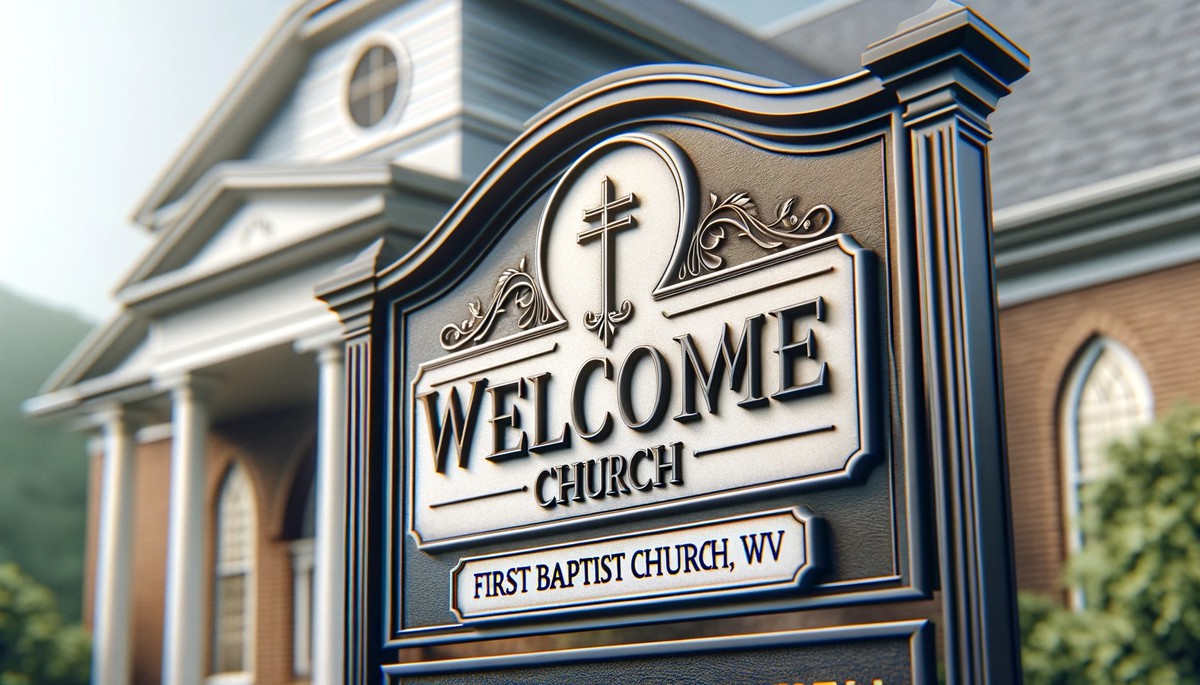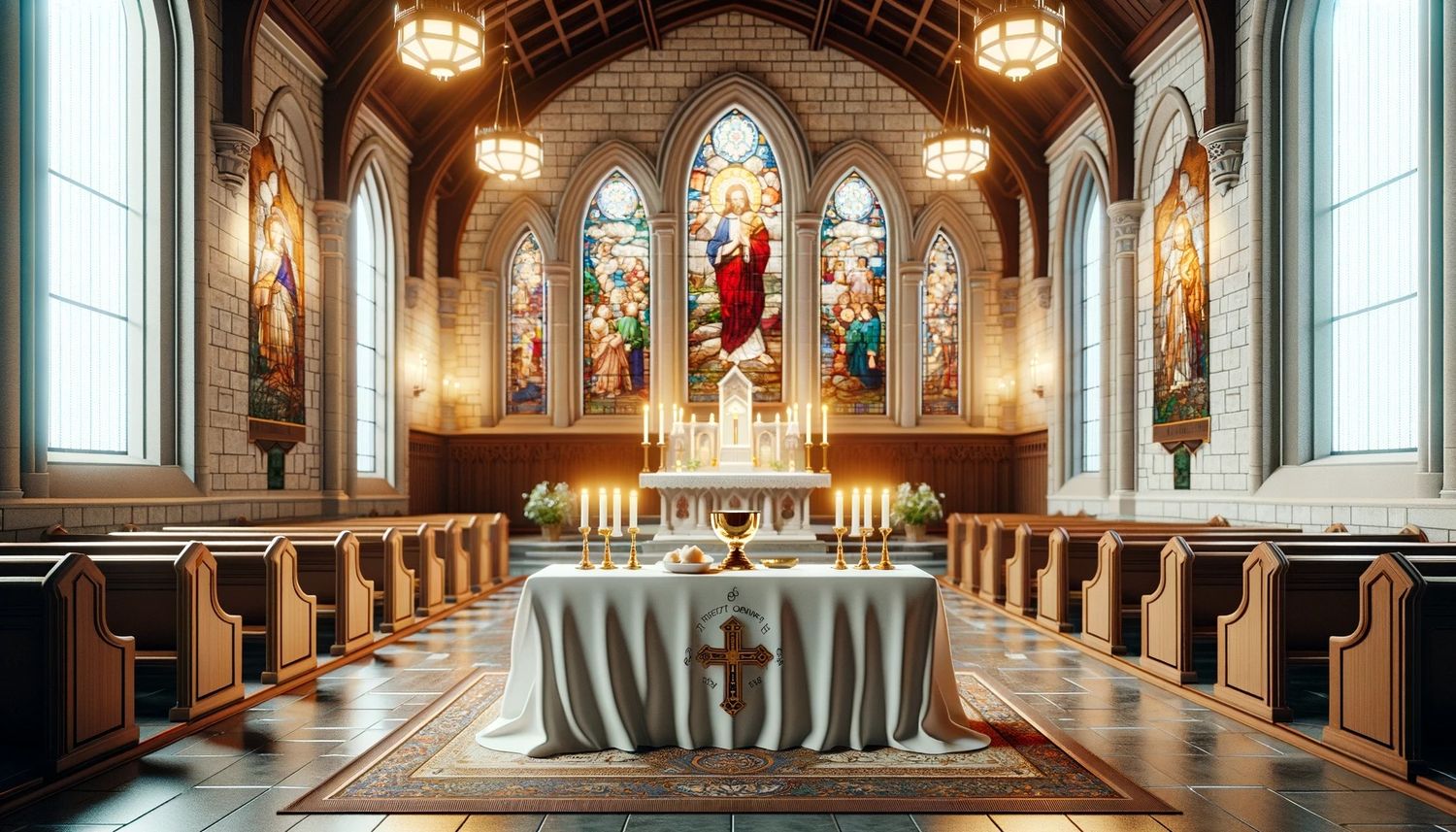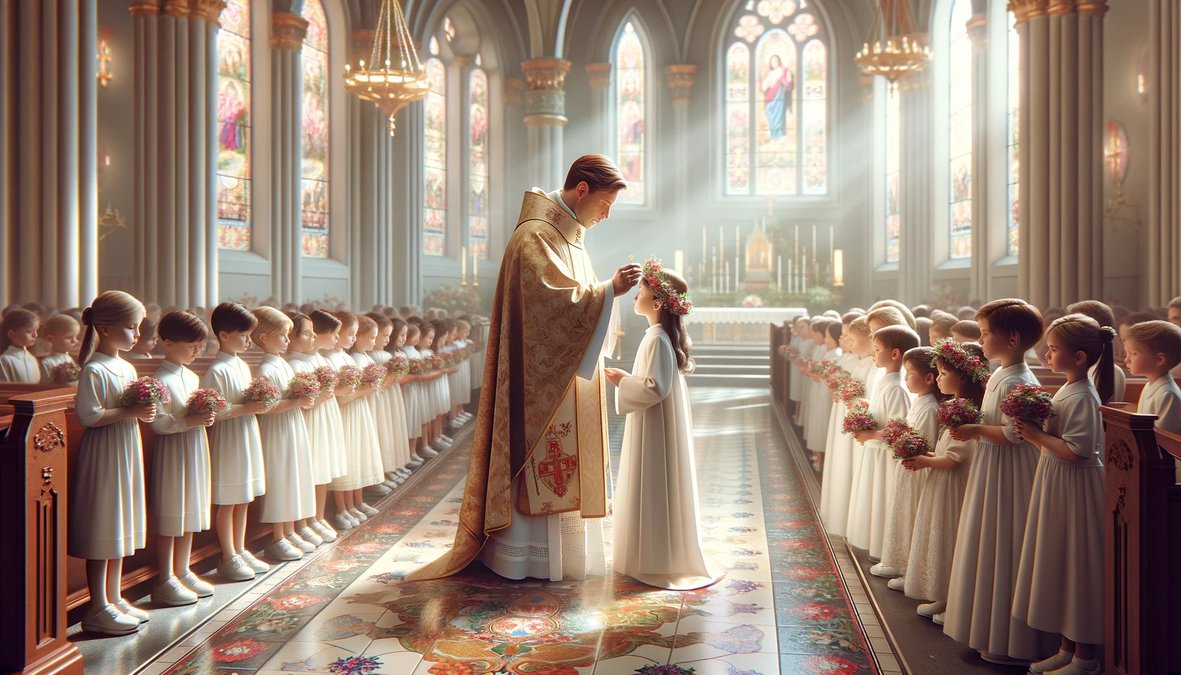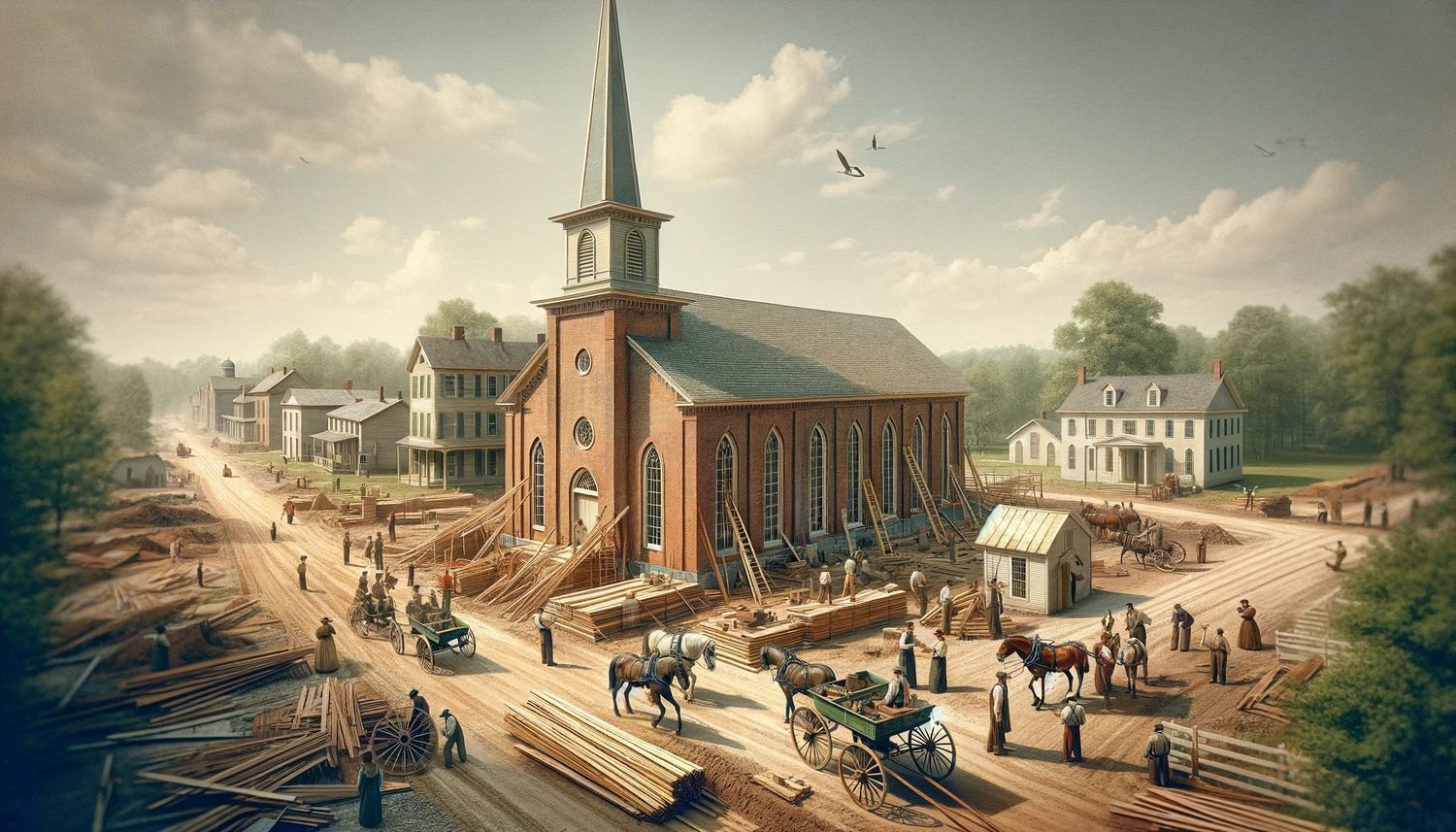Home>Theology and Spirituality>What Is The First Baptist Church In America
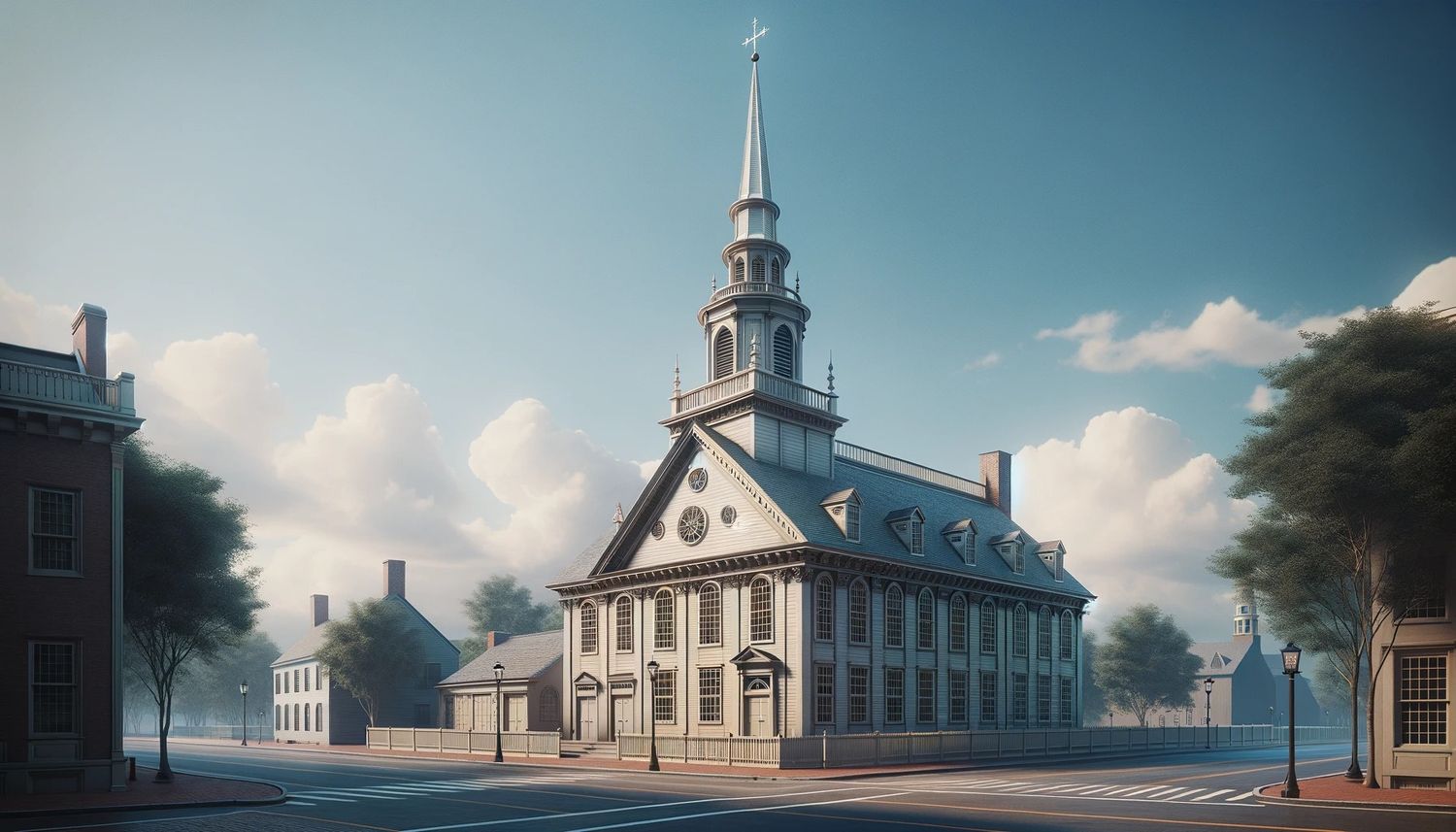

Theology and Spirituality
What Is The First Baptist Church In America
Published: February 21, 2024
Jason DeRose, Managing Editor at Christian.net, uses his expertise in religion and journalism to deepen understanding of faith's societal impacts. His editorial leadership, coupled with a strong academic background, enriches the platform’s diverse content, earning him recognition in both journalism and religious circles.
Discover the rich history and spiritual significance of the First Baptist Church in America. Explore its impact on theology and spirituality.
(Many of the links in this article redirect to a specific reviewed product. Your purchase of these products through affiliate links helps to generate commission for Christian.net, at no extra cost. Learn more)
Table of Contents
Introduction
The First Baptist Church in America holds a significant place in the annals of religious history, embodying the enduring spirit of faith, freedom, and community. As the oldest Baptist congregation in the United States, it stands as a testament to the enduring legacy of religious liberty and the pursuit of spiritual truth.
Established in a time of great religious and political upheaval, the First Baptist Church in America has weathered centuries of change while remaining steadfast in its commitment to its core values. Its story is intertwined with the very fabric of American history, reflecting the nation's journey through revolution, enlightenment, and the ongoing quest for individual and collective freedom.
This venerable institution has not only witnessed the ebb and flow of history but has also played an active role in shaping the religious landscape of the United States. From its humble beginnings to its present-day influence, the First Baptist Church in America continues to inspire and guide generations of believers, serving as a beacon of hope and a symbol of unwavering devotion.
As we delve into the rich tapestry of the First Baptist Church's history, we will uncover the remarkable individuals, pivotal events, and enduring principles that have defined this esteemed institution. From its founding to its contemporary significance, the journey of the First Baptist Church in America offers profound insights into the intersection of faith, freedom, and the human experience.
Join us on a captivating exploration of the First Baptist Church in America, where the past converges with the present to illuminate the timeless values that continue to resonate with people of all walks of life.
Read more: When Was The First Baptist Church In America
History of the First Baptist Church in America
The history of the First Baptist Church in America is a compelling narrative that unfolds against the backdrop of religious fervor and the quest for religious freedom. Its origins can be traced back to the early 17th century, a time marked by religious upheaval and the fervent pursuit of spiritual autonomy. In 1638, Roger Williams, a renowned advocate for religious liberty, founded the First Baptist Church in Providence, Rhode Island, making it the oldest Baptist congregation in the United States.
The establishment of the First Baptist Church in America was a watershed moment in the history of religious expression, as it symbolized a departure from the hierarchical structures of traditional churches and embraced the principles of congregational autonomy and individual conscience. This bold departure from the prevailing religious norms of the time laid the foundation for the enduring legacy of the Baptist faith in the United States.
The early years of the First Baptist Church were marked by resilience and unwavering commitment to its core principles. Despite facing opposition and persecution, the congregation remained steadfast in its dedication to religious freedom and the belief in the priesthood of all believers. This steadfastness not only shaped the identity of the church but also left an indelible mark on the broader landscape of religious diversity in America.
As the centuries unfolded, the First Baptist Church in America continued to evolve, adapting to the changing social and cultural dynamics while remaining true to its foundational values. It became a bastion of religious tolerance and a symbol of the enduring quest for spiritual truth, attracting believers from diverse backgrounds and fostering a sense of community and belonging.
The history of the First Baptist Church in America is a testament to the enduring power of faith, resilience, and the pursuit of freedom. Its journey mirrors the broader narrative of American history, reflecting the nation's ongoing quest for individual and collective liberty. As we delve into the annals of its history, we gain profound insights into the transformative impact of the First Baptist Church on the religious landscape of the United States, and its enduring legacy as a beacon of hope and spiritual fortitude.
Founding of the First Baptist Church in America
The founding of the First Baptist Church in America marks a pivotal moment in the tapestry of religious history, embodying the spirit of resilience, conviction, and the pursuit of religious freedom. In 1636, Roger Williams, a staunch advocate for religious liberty and the separation of church and state, established the First Baptist Church in Providence, Rhode Island. This historic event laid the cornerstone for the oldest Baptist congregation in the United States and set in motion a legacy that would endure for centuries.
Roger Williams, a visionary theologian and a proponent of individual conscience, sought to create a space where believers could worship freely and without the constraints of state interference. His unwavering commitment to religious autonomy and the priesthood of all believers culminated in the founding of the First Baptist Church, a bold departure from the established religious order of the time.
The establishment of the First Baptist Church in America was not merely a symbolic gesture; it represented a radical departure from the prevailing religious norms of the era. Embracing the principles of congregational autonomy and the freedom of conscience, the fledgling congregation became a beacon of hope for those seeking spiritual refuge and unfettered worship.
The founding of the First Baptist Church in America was not without its challenges. In a time marked by religious intolerance and persecution, the congregation faced opposition from the religious and political authorities of the day. However, this adversity only served to fortify the resolve of the early members, who remained steadfast in their commitment to the principles of religious freedom and individual autonomy.
The founding of the First Baptist Church in America stands as a testament to the enduring human quest for spiritual truth and the unyielding pursuit of freedom. It represents a defining moment in the history of religious expression, reflecting the indomitable spirit of those who sought to carve out a space for unfettered worship and the free exercise of faith.
As we reflect on the founding of the First Baptist Church in America, we are reminded of the transformative power of conviction, resilience, and the unwavering pursuit of religious liberty. This historic event continues to resonate with believers and non-believers alike, serving as a poignant reminder of the enduring human longing for spiritual autonomy and the freedom to worship according to one's conscience.
Notable Events and Figures in the First Baptist Church's History
The history of the First Baptist Church in America is replete with notable events and figures that have left an indelible mark on the religious landscape of the United States. From its founding in the 17th century to its enduring legacy in the present day, the church has been shaped by pivotal moments and remarkable individuals who have contributed to its rich tapestry.
Roger Williams: A Champion of Religious Liberty
At the heart of the First Baptist Church's history stands Roger Williams, a visionary theologian and staunch advocate for religious freedom. Williams' unwavering commitment to the separation of church and state and the freedom of conscience laid the groundwork for the establishment of the church in Providence, Rhode Island. His enduring legacy as a champion of religious liberty continues to inspire generations of believers and stands as a testament to the enduring power of conviction and principle.
Read more: Where Is The First Baptist Church
The Charter of Rhode Island and Providence Plantations
In 1663, the Charter of Rhode Island and Providence Plantations, secured by Roger Williams and other proponents of religious freedom, formally recognized the rights of individuals to worship according to their own conscience. This historic document not only affirmed the principles upon which the First Baptist Church was founded but also set a precedent for religious tolerance and pluralism in the fledgling American colonies.
The Influence of Ann and William Hasseltine
During the 18th century, the First Baptist Church experienced a period of growth and transformation under the leadership of Ann and William Hasseltine. Their steadfast dedication to the congregation and their efforts to foster a sense of community and spiritual growth left an enduring imprint on the church's history, shaping its ethos of inclusivity and fellowship.
The Abolitionist Movement and the First Baptist Church
In the 19th century, the First Baptist Church became a bastion of the abolitionist movement, advocating for the emancipation of enslaved individuals and actively participating in efforts to combat the institution of slavery. The church's unwavering commitment to social justice and human rights exemplified its enduring relevance in the face of pressing moral and ethical challenges.
The Modern Era and the First Baptist Church
In the modern era, the First Baptist Church continues to be a beacon of hope and spiritual guidance, embracing diversity and fostering a spirit of inclusivity. Its commitment to social outreach, community engagement, and the promotion of religious tolerance underscores its enduring significance in an ever-changing world.
The notable events and figures in the First Baptist Church's history serve as a testament to the enduring legacy of faith, resilience, and the pursuit of religious freedom. Each chapter in the church's story reflects the unwavering commitment of individuals who have shaped its identity and contributed to its enduring impact on the religious and social fabric of the United States.
The Role of the First Baptist Church in America Today
The First Baptist Church in America continues to play a pivotal role in shaping the religious and social landscape of the United States. As the oldest Baptist congregation in the country, it stands as a beacon of hope, a center of spiritual guidance, and a symbol of unwavering commitment to the principles of faith, freedom, and community.
In the contemporary era, the First Baptist Church remains deeply engaged in fostering a spirit of inclusivity and compassion. It serves as a hub for community outreach, providing vital support to those in need and offering a sanctuary for individuals seeking solace and spiritual nourishment. Through its various outreach programs, the church addresses pressing social issues, including poverty, homelessness, and food insecurity, embodying the timeless values of empathy and service to others.
Furthermore, the First Baptist Church continues to uphold its legacy of advocating for social justice and human rights. It stands as a steadfast ally in the ongoing pursuit of equality and dignity for all individuals, irrespective of their background or circumstances. By actively engaging in initiatives aimed at promoting equality and combating discrimination, the church exemplifies its enduring commitment to the principles of compassion, equality, and the inherent worth of every human being.
In addition to its community-focused endeavors, the First Baptist Church remains a source of spiritual guidance and enlightenment for its members and the broader community. Through its worship services, educational programs, and pastoral care, the church provides a nurturing environment for individuals to explore and deepen their faith, fostering a sense of belonging and spiritual growth.
Moreover, the First Baptist Church continues to embrace diversity and inclusivity, welcoming individuals from all walks of life and creating a space where people can come together in fellowship and mutual respect. Its commitment to fostering a welcoming and affirming environment underscores its role as a unifying force in an increasingly diverse and interconnected society.
As the First Baptist Church in America navigates the complexities of the modern world, it remains steadfast in its dedication to the enduring values of faith, freedom, and community. Its role as a catalyst for positive change, a sanctuary for the soul, and a beacon of hope underscores its profound impact on the lives of individuals and the broader community, reaffirming its timeless relevance in an ever-changing world.
Conclusion
The journey of the First Baptist Church in America is a testament to the enduring power of faith, resilience, and the pursuit of religious freedom. From its humble beginnings in the 17th century to its contemporary role as a beacon of hope and spiritual guidance, the church has embodied the timeless values of compassion, inclusivity, and unwavering devotion to the principles of faith and freedom.
As we reflect on the rich tapestry of the church's history, we are reminded of the indomitable spirit of individuals who sought to carve out a space for unfettered worship and the free exercise of faith. The founding of the First Baptist Church in America by Roger Williams stands as a pivotal moment in the annals of religious history, symbolizing a departure from the hierarchical structures of traditional churches and embracing the principles of congregational autonomy and individual conscience.
Throughout its storied history, the First Baptist Church has weathered centuries of change while remaining steadfast in its commitment to its core values. It has served as a sanctuary for the soul, a catalyst for positive change, and a symbol of unwavering commitment to the principles of faith, freedom, and community. The church's enduring legacy as a champion of religious liberty continues to inspire and guide generations of believers, serving as a testament to the enduring power of conviction and principle.
In the modern era, the First Baptist Church remains deeply engaged in fostering a spirit of inclusivity, compassion, and social justice. Its commitment to addressing pressing social issues and advocating for equality underscores its enduring relevance in an ever-changing world. Through its various outreach programs and community-focused endeavors, the church continues to make a tangible difference in the lives of individuals, embodying the timeless values of empathy and service to others.
As the oldest Baptist congregation in the United States, the First Baptist Church in America stands as a living testament to the enduring legacy of faith, resilience, and the pursuit of religious freedom. Its story is intertwined with the very fabric of American history, reflecting the nation's journey through revolution, enlightenment, and the ongoing quest for individual and collective freedom. The church's role as a unifying force, a sanctuary for the soul, and a beacon of hope underscores its profound impact on the lives of individuals and the broader community, reaffirming its timeless relevance in an ever-changing world.
